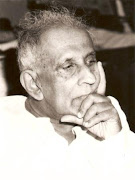Tower/ City (Genesis 11:1-9)
Saji P. George
The story of the tower of Babel narrates a human attempt to build aCITY/ TOWER to create a name for themselves and the divine eruptionthat dismantled the plan by confusing the language. The narrator says,"Therefore its name is called Babel, because there the Lord confusedthe language of all the earth; and from there the Lord scattered themabroad over the face of all the earth." The story seems to address the curiosity to understand the linguisticdiversity on earth and more perhaps the divergent discourses thatprevents mutual understanding amidst the slaveries, wars and pillagesthat shattered humanity, an experience shared very much by thenarrator's immediate audience.
The narrative took its final redactedshape in the post exilic Judaic community that passed through a tragicmilieu of war and scattering. Like every Genesis story, it is permeated with the eschatology andhope shared by the narrators. The narratives of "Origins" pointtowards the "Futures". In clear contrast to what we read in the story of Babel, Isaiah andMicah prophesized that - "in the last days it shall come to pass,that the mountain of the house of the LORD shall be established in thetop of the mountains, and it shall be exalted above the hills; andpeople shall flow unto it. And many nations shall come, and say, Come,and let us go up to the mountain of the LORD, and to the house of theGod of Jacob; and he will teach us of his ways, and we will walk inhis paths: for the law shall go forth of Zion, and the word of theLORD from Jerusalem. And he shall judge among many people, and rebukestrong nations afar off; and they shall beat their swords intoplowshares, and their spears into pruning hooks: nation shall not liftup a sword against nation, neither shall they learn war any more..."
In certain psalmist visions of Davidic dynasty, the nations of theworld were to come to Jerusalem and offer tribute symbolizingallegiance to Israel. But in the picture drawn by Isaiah as theassembly at Zion, Yahweh dwells as an alluring source of wisdom andjustice and nations are simply drawn by the attractive power of God.The role of the covenant people here, correlates well with thetradition that understand Israel's destiny as humble servants for theblessing of the nations and as a Kingdom of Priests in the covenantalscheme, from which they have deviated in arrogance and pride like thebuilders in the tower story. The 'scattered' are both the Villains(Israel by internal injustice) and Victims in Isaiah. Psalm 87 too shares the vision that even the most entrenched enemiesof Israel were their brethren born at Zion. In Joel the nations areto be judged after cosmic victory by God on account of the sufferingsof his people. In the gospel we read Jesus furthers this vision,where the nations are to be judged on account of what they did to theChrist embodied in those afflicted by the destitution caused byinjustices of worldly power, irrespective of racial/ nationalidentity. Again, in Paul, this day of the Lord is the one which everycreature (hard coded with a survival logic to be embedded in a chainof fear and violence and) bound to decay waits with eager longing -The day of bodily redemption and cosmic salvation. On that day a CITYthat is not a handiwork of men will come down from heaven. Not LikeBabel; it has the glory of God and radiance like a very rare jewel,like jasper, clear as crystal. The messengers of this great news spokein other tongues, signaling the arrival of the ultimate realization ofthe fall of Babel and the radical reversal of the confusion.The space-time of the Lord is out there, perching on the very edges of our world, so imminent and near, ready to break-in and change our lifeworld, say the visionaries. Jesus said it is already among you. Inhumble self-giving service, love and worship we embody this victorious(where death is overpowered) universe and beam its light for thenations and people to see and realize that the shadows cast by themarching of history were but deceptions. Except for those seeminglyunconnected moments when the "Future" broke-in flashing like alightening and we experienced freedom, love and liberation!







.jpg)






No comments:
Post a Comment
Thank you very much for responding to the post. Please keep in touch in future also.